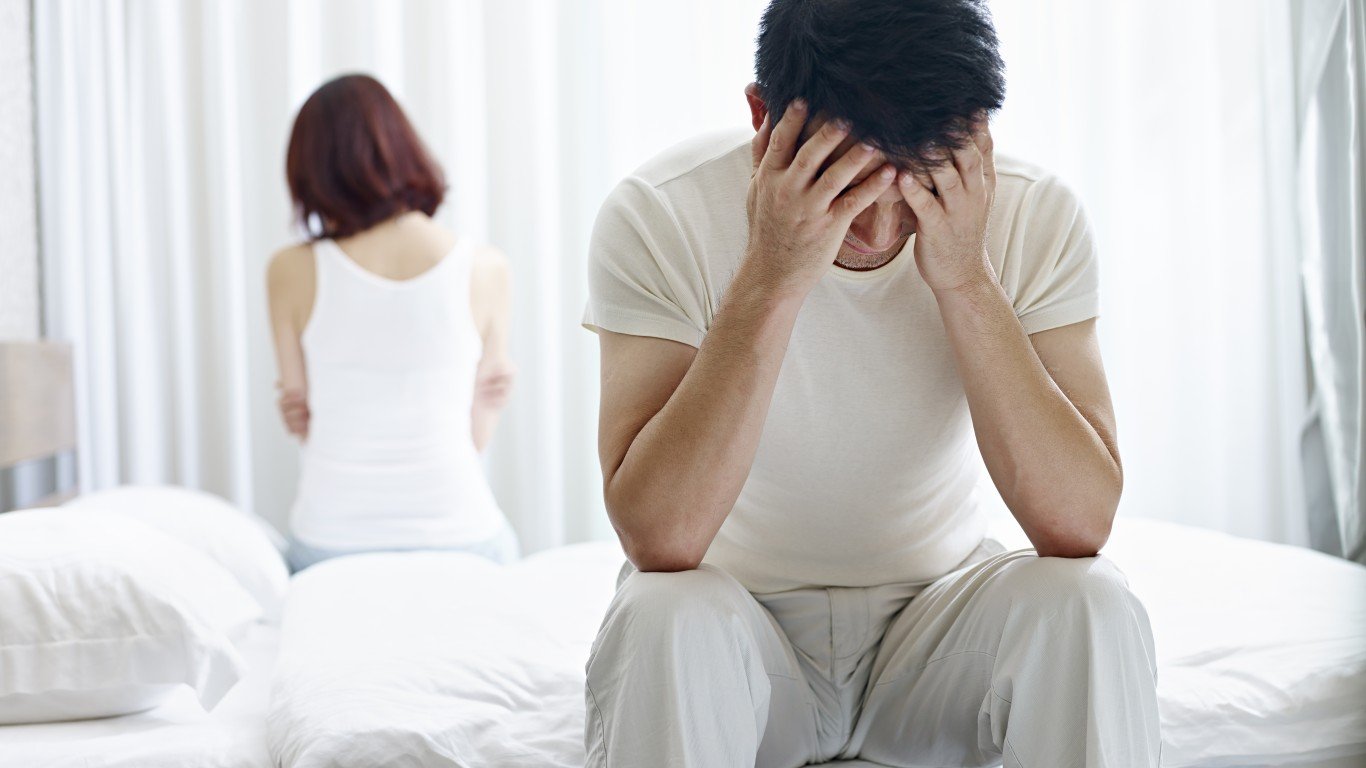Taking care of your mental health is crucial to your overall happiness and well-being. While some people might think that self-care simply revolves around booking spa days and lounging in heated jacuzzis, much more goes into mental healthcare. There’s a chance you’ve been neglecting your mental health if one or more of these warning signs applies to you directly.
If you truly have been neglecting your mental health, it’s your responsibility to start making some significant changes. Living, a peaceful and fulfilling existence is possible if you’re willing to implement some necessary shifts. This might include leaving a toxic relationship, stepping back from an overwhelming job, exercising more often, booking sessions with a therapist, or getting more sleep at night. Click here to read up on 19 expert-backed tricks to achieve better sleep at night.
To narrow down these warning signs of one’s neglected mental health, 247 Tempo consulted several insightful and informational publications. These include The Suicide Prevention Resource Center, The CDC, The Mayo Clinic, and others.
You’ve got a hopeless outlook on life

An obvious sign you’ve been neglecting your mental health is based on your general outlook on life. If you feel completely hopeless about whatever’s coming next, it’s time for you to seek out some professional help. According to Suicide Prevention Resource Center, feelings of hopelessness are often intertwined with feelings of worthlessness. If you don’t feel like you’ve got a life worth living, it’s nearly impossible for your mental health to thrive.
In this case, it’s vital to seek out things you can get excited about. Find out if there are any new movies playing at your local theater this weekend. Set up a coffee date with a friend you haven’t caught up with in a while. Decide on a goal you’d like to achieve that can realistically be obtained within the next couple of weeks or months.
Nothing interests you anymore

Your mental health is certainly not in a good way if you’re noticing that nothing is interesting to you anymore. People who are mentally healthy have loads of riveting interests to focus on at any given moment. When you’re not interested in going anywhere, talking to anyone, or doing any of the things you used to enjoy, this is a clear sign you might need some help.
Someone who used to enjoy painting oil-based portraits in their free time shouldn’t suddenly feel drained by the idea of picking up a paint brush. Someone who once loved cooking new recipes each night shouldn’t suddenly be turned off by the idea of stepping into their kitchen.
You’ve got frustrating sleep issues

Sleep issues are telltale signs that your mental health is suffering. The CDC says if you’re waking up too early or sleeping too much, there’s a chance you could be suffering from depression or other mental health issues. Insomnia is another serious sleep problem that’s directly connected to your mental health.
People who can’t easily fall asleep or stay asleep at night often feel trapped awake with their never-ending thoughts playing on a loop. It’s normal to aim for about eight hours of sleep each night to feel rejuvenated and refreshed each morning. If your sleep issues are persisting, a bigger discussion about your mental health should take place.
Your appetite is fluctuating

A fluctuating appetite is something to keep an eye out for if you’re worried about developing mental health issues. The CDC says that if you’re eating more than usual, less than usual, or you’re experiencing no appetite at all, there could be deeper mental health issues a play.
You’ll notice that your appetite is fluctuating beyond what’s normal for you if you start seeing significant weight changes. Drastic weight gain or weight loss is typically pretty easy to spot. If your level of weight loss or weight gain isn’t too noticeable, try to pay attention to how hungry you are during normal meal times throughout the day.
Your friendships and relationships have been suffering

When your mental health is suffering, it’s nearly unavoidable for your social connections to start suffering too. If you’re not nurturing yourself and pouring into yourself, how can you pour in to others? If you’ve been noticing that your friendships and relationships are starting to feel strained, it’s important to start addressing your mental health issues.
It would be absolutely devastating to permanently lose out on a special friendship or relationship based on mental health issues that you’re trying to sweep under the rug. There is a high chance the people who genuinely love you are hoping you’ll take your mental health seriously. When you do, you have a better chance at preserving the longevity of your connections.
You’ve been abusing alcohol or drugs

Abusing drugs and alcohol is something some people do when they’re trying to escape their reality. You don’t have to come to terms with your misery or loneliness during moments when you’re temporarily under the influence. The Mayo Clinic says alcohol or drug abuse is a strong indication of mental health issues. Some folks can use substances recreationally without falling into addictive patterns or creating major issues, but that’s not the case for everyone.
If you’ve seen your alcohol and drug usage start veering into full-fledged addiction territory, it’s time to address your mental health as soon as possible. If your alcohol and drug use has caused health related issues in your body or trouble with the law, you probably already know that your mental health isn’t in a great place.
You feel unconscionably lonely

Part of the human condition is embracing the natural desire to connect with others. Human beings weren’t built to live lonely lives in isolation. If you’ve been feeling unconscionably lonely, you must remind yourself that you don’t live on a one-person island.
It’s fully possible for you to reach out to others in an attempt to create healthy bonds and connections. If the idea of trying to befriend people, romantically pursue people, or even spend time with your blood-related family members is way too overwhelming for you, this is a major sign of neglected mental health.
You keep rehashing the past

People who are living peaceful, happy, unfulfilled lives don’t waste their time rehashing the past. They accept that the past is already over, which means it’s time to either live in the present or look forward to the future. Your mental health is likely suffering if you can’t snap out of it whenever thoughts of the past flow into your brain.
Just about everyone on this planet has at least a small handful of regrets based on mistakes they wish they never made. The difference between someone who’s mentally healthy and someone who isn’t is the ability to forgive yourself and stop rehashing moments that make you feel ashamed.
You’re engaging in risky behaviors and self-sabotage

If you’ve been engaging in risky behaviors or self-sabotage lately, this is a sign that you need to start working on your mental health. People who are genuinely happy aren’t attracted to activities that would put their lives at risk. Folks who are living fulfilling lives aren’t participating in actions that would classify as self-sabotage, either.
Anyone who’s feeling deeply miserable, depressed, or sad might try to distract themselves from what they’re going through by taking big risks that allow them to temporarily deflect. Some examples of risky behaviors include recklessly driving on the road, striking up physical fights outside of bars, and having unprotected sex with multiple partners.
One example of self sabotage would be performing so lazily and poorly at work that your job gets placed on the chop and block. Another example would be showcasing an emotionally unavailable persona to your romantic partner as a way of pushing them away.
You’ve been idealistically thinking about death

One of the biggest warning signs of neglected mental health is if you’ve been thinking about death in an idealistic manner. There’s a difference between feeling peaceful about death and wholeheartedly fantasizing about it. People who are mentally healthy grasp the concept that they’ll eventually die, but they’re still content to live in the moment. They’re still willing to create as many memories as they can while they’re breathing.
Those who are not mentally healthy spend time fixated on the concept of death in a very detrimental way. Daydreaming about death because you aren’t happy being alive is a serious sign that you need to seek out professional help. People who die by suicide often showcase several signs of mental health issues and depression before taking any real action.
Pay close attention to any warning signs you notice within yourself and others to avoid ever reaching such grim state of mind. Now that you’re aware of these neglected mental health warning signs, discover 28 signs that prove your physical health isn’t up to par.
